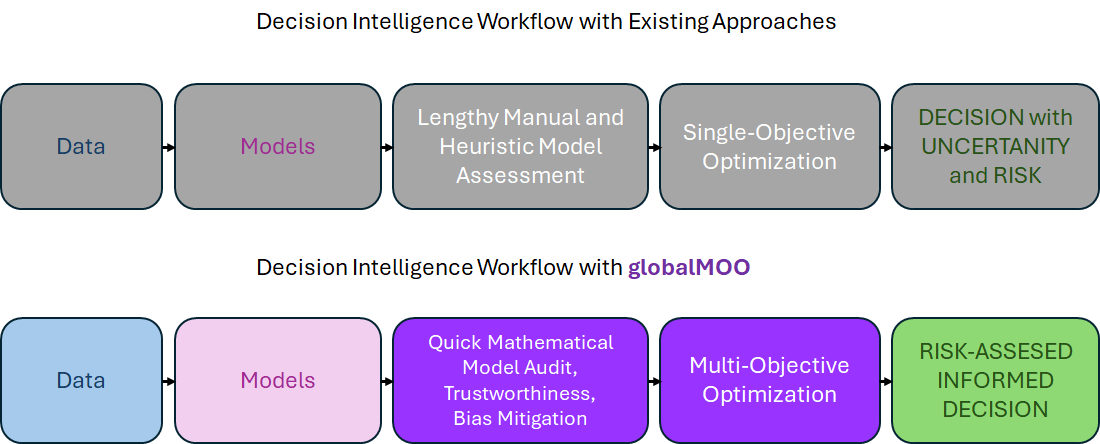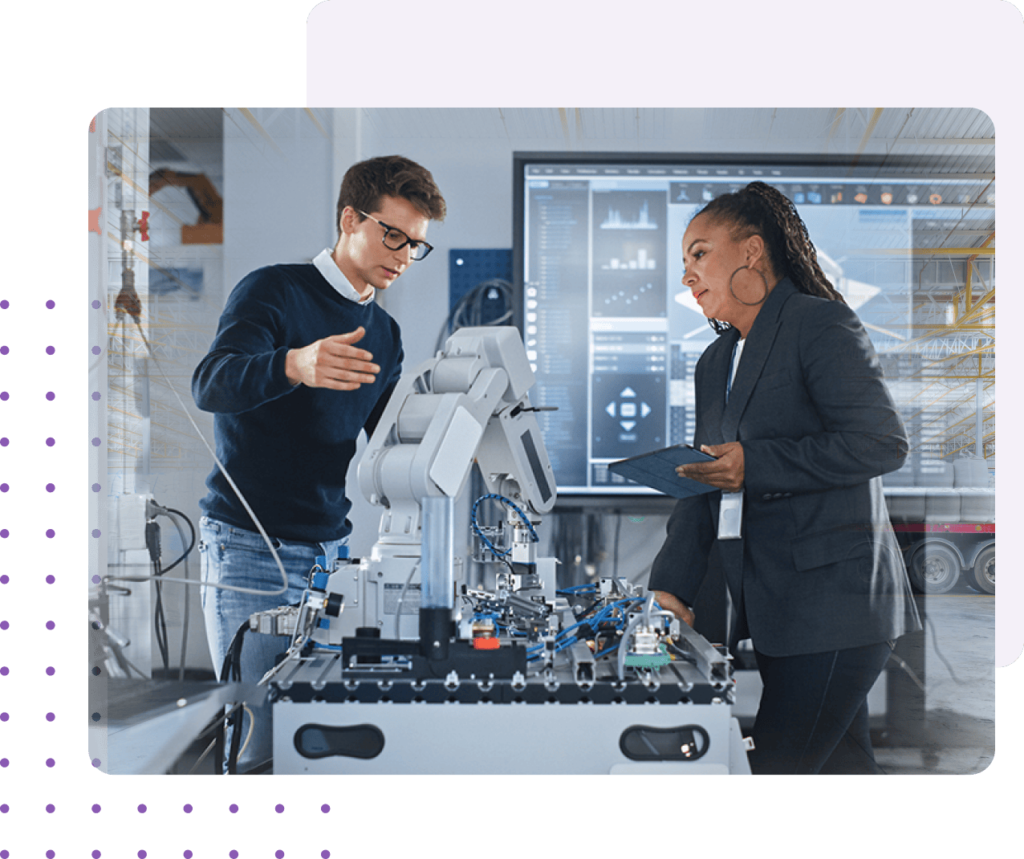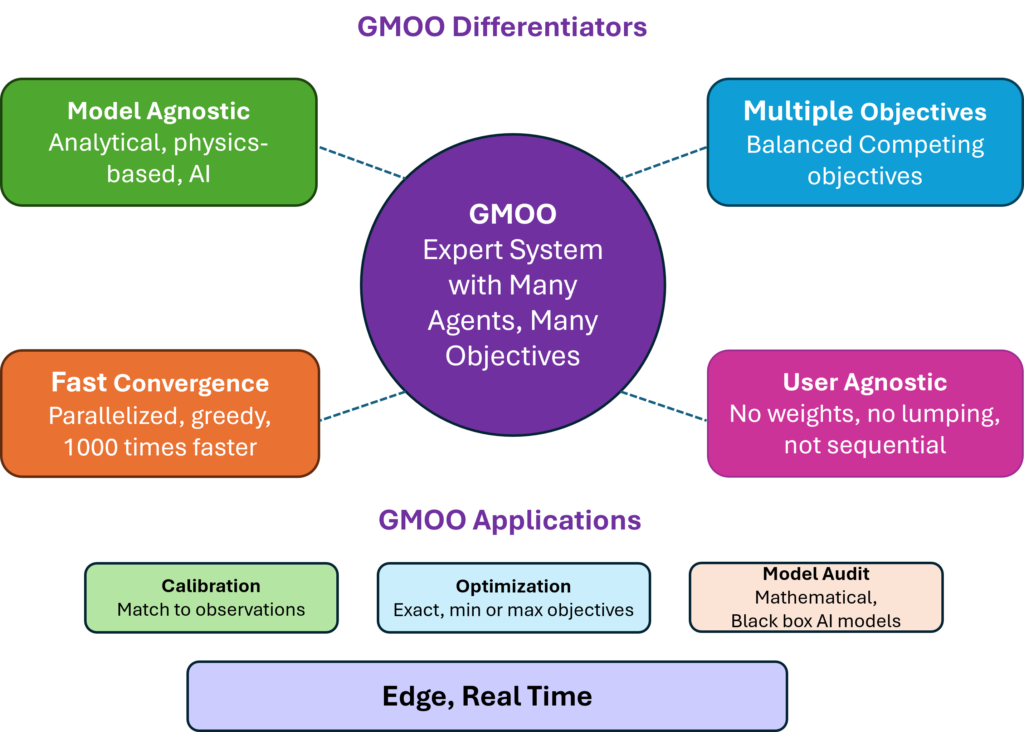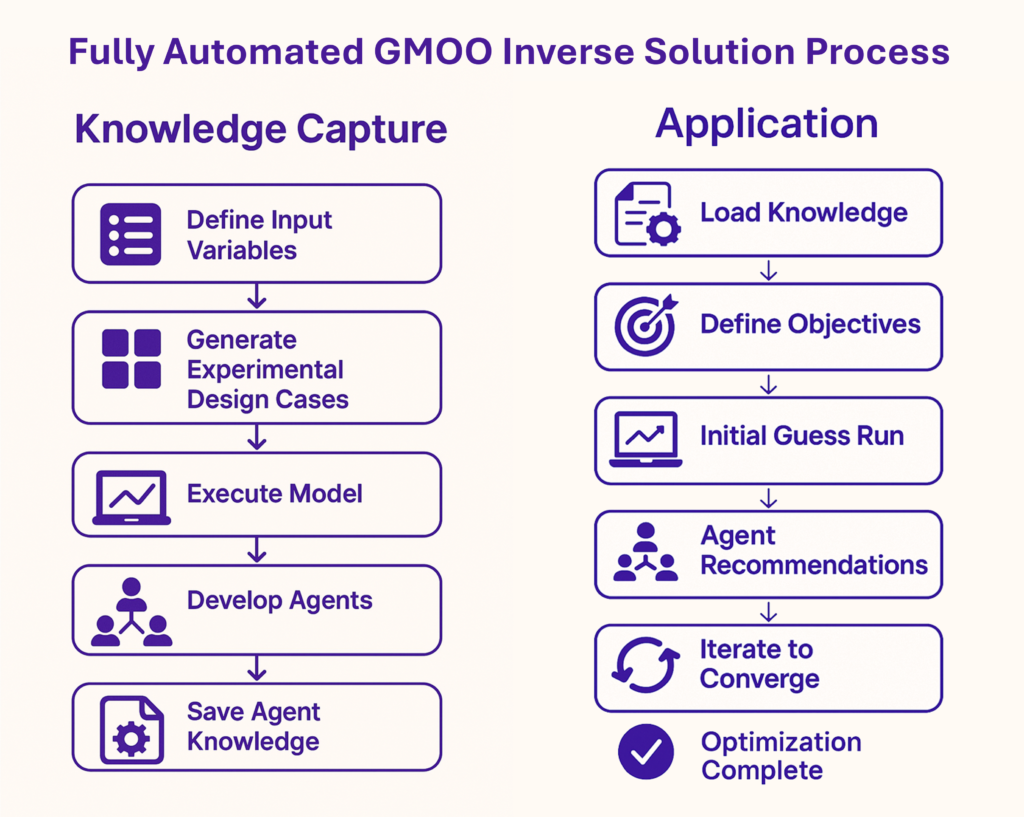Agent Driven
Multi-Objective Inverse Solution and Optimization
Next Level of Decision Intelligence:
A Paradigm Shift
globalMOO revolutionizes inverse solution and optimization across industries, delivering unmatched speed and efficiency.
Real world Problems Rarely Have a Single "Right Answer".
Trustworthy and Powerful Decisions in Multi-Dimensions are Possible
with globalMOO

Agent-driven inverse solution technology can solve any multi-outcome problem and optimize multiple objectives including black-box AI models delivering value across your organization by:
- Balancing the trade-offs mathematically between conflicting business objectives through multi-objective optimization.
- Automating decision intelligence by creating a seamless link between multi-outcome models and automated decision workflows.
- Eliminating modifications to your models or infrastructure by implementing our sophisticated optimization method through five API endpoints. Implementation is within days instead of months.
- Reducing risk by eliminating the human intervention by eliminating subjective weight assignments and lumping of objectives.
- Calculating bias and impact factor in the models: linear, non-linear and black box AI models.
- Providing true model explainability for multiple-outcomes providing model trustworthiness.
- Enabling edge-optimized smart optimization through a multi-threaded distributed computation algorithm, improving the computational efficiency of remote, distributed systems where decisions must be made locally.
- Implementing real-time optimization through its unique reusable knowledge repository.
WHAT is globalMOO?
Agent-Based Expert System for Inverse Solutions
globalMOO is a software API designed to optimize multiple objectives using many agents that are self-learning. Inversely solves and optimizes any model/algorithm, including black box AI models.
It is delivered as a DLL with a powerful and easy-to-integrate API in multiple programming languages.
Web API integration is also available. Easy plug-in, only five required endpoints for integration.
Distinguishing Features
Solves multiple objectives.
globalMOO solves for multiple objectives efficiently using a multithreaded parallel implementation. The objectives may be in different units and scales. Does not require human intervention. No subjective weight assignments, no lumping.
KKT and Pareto optimization in one pass.
globalMOO can minimize one objective, maximize another, match the defined targets for others and constrain (greater than and/or less than) other targets all at the same time. For highly complex models, the user can provide additional knowledge to the agents.
Model agnostic. No need to expose, simplify or reformulate your models.
- globalMOO can be applied to any predictive algorithm, be it a spreadsheet, physics-based simulator, system of analytical equations, or an AI-based model.
- globalMOO can solve the inverse of black-box models, including linear and non-linear complex problems.
Flexible variable selection applicable to a wide range of problems.
globalMOO can handle, float, integer and logical variables, in combination with categorical variables.

WHY use globalMOO?
True Multi-Outcome Inverse Solution and Optimization

Fast and reliable.
For Pareto-optimal search and selection, existing approaches require astronomical compute resources and excessive numbers of model evaluations. globalMOO quickly finds the Pareto-optimal conditions with a greedy learning algorithm.
KKT-optimality.
For Karush-Kuhn-Tucker (KKT-optimal) conditions, there are no known numerical approaches for larger problem sizes. globalMOO finds the KKT-optimal solution with a greedy learning algorithm for fast and reliable application.
No user intervention.
Approaches that rely on heuristic methods must be tailored for the specific problem at hand. globalMOO does not rely on subjective judgements, therefore it is applicable to any predictive model with precise outcomes.
No scalarization.
Many predictive software models yield outputs that are in different units. Current approaches require scalarization through heuristic weight assignments. Hence, the results are user-dependent and can rarely be described as optimal. globalMOO provides user-independent results.
Energy efficient.
globalMOO performs targeted optimization using inverse solution from the desired system objectives which speeds up the solution time and more efficiently uses computational resources.
Edge computing.
The structure of the API allows training of agents at compute centers, while the application of these agents can be performed by CPUs at the edge. Learning is done once, but the trained agents can be used many times for different inverse solution or optimization objectives.
WHERE is it used?
Most Common Practical Applications
Calibration: All predictive models require calibration to the historically observed data. globalMOO’s inverse solution capabilities for multiple outputs (including temporal) enables the user to define and solve for many variables to match the data.
Optimization: globalMOO uses inverse solutions to minimize and/or maximize multiple objectives iteratively, including Pareto or KKT optimization.
Mathematical Model Audit: globalMOO calculates impact factors of multiple-outcome models including black box AI models and recommends solutions to mitigate bias .


HOW does it work?
Just like subject matter experts, globalMOO agents learn from mistakes and gain experience
In the learning stage, globalMOO prescribes a limited number of predictive model runs (numerical experiments) for its Agents to train on the inverse solution. Later, in the application stage, globalMOO provides guidance on how to update the input variables to reach the desired objectives.